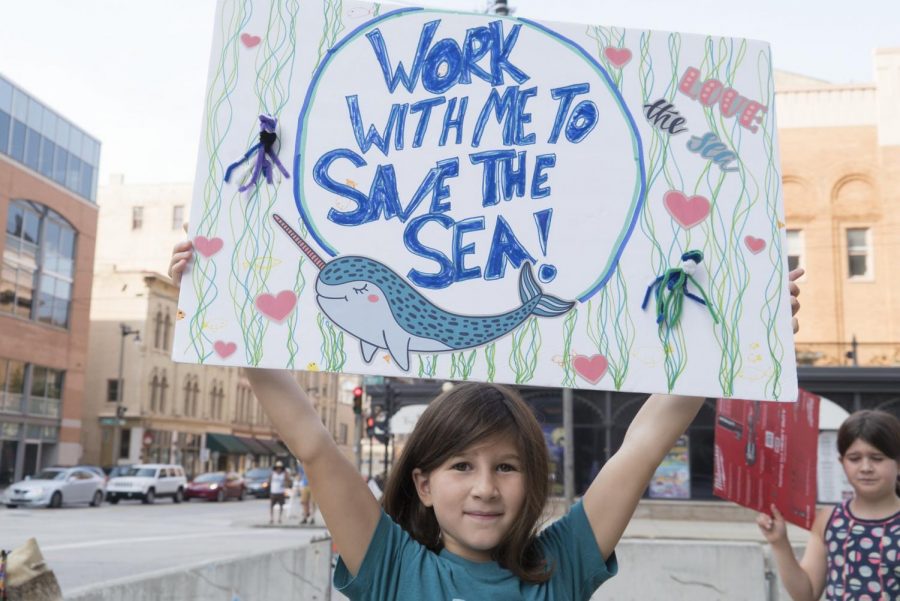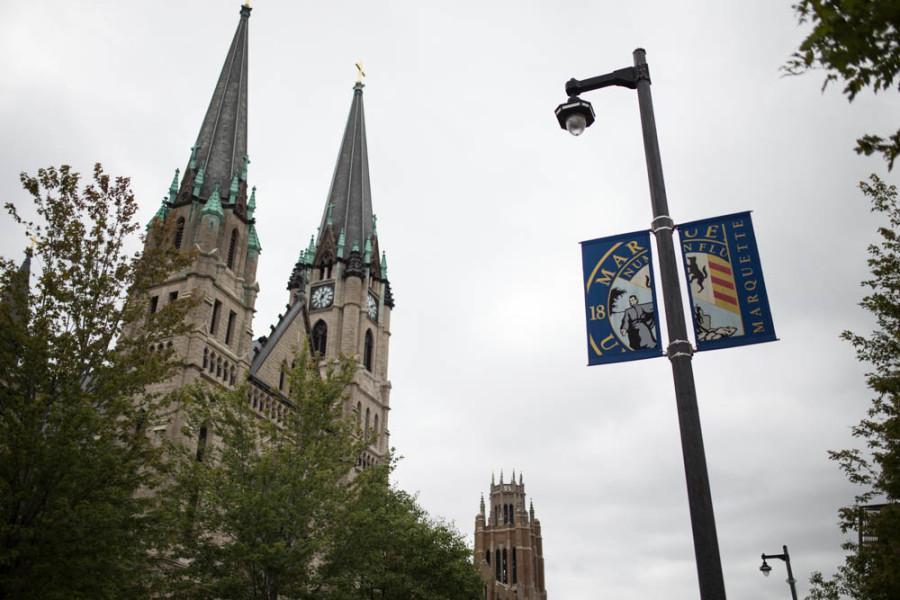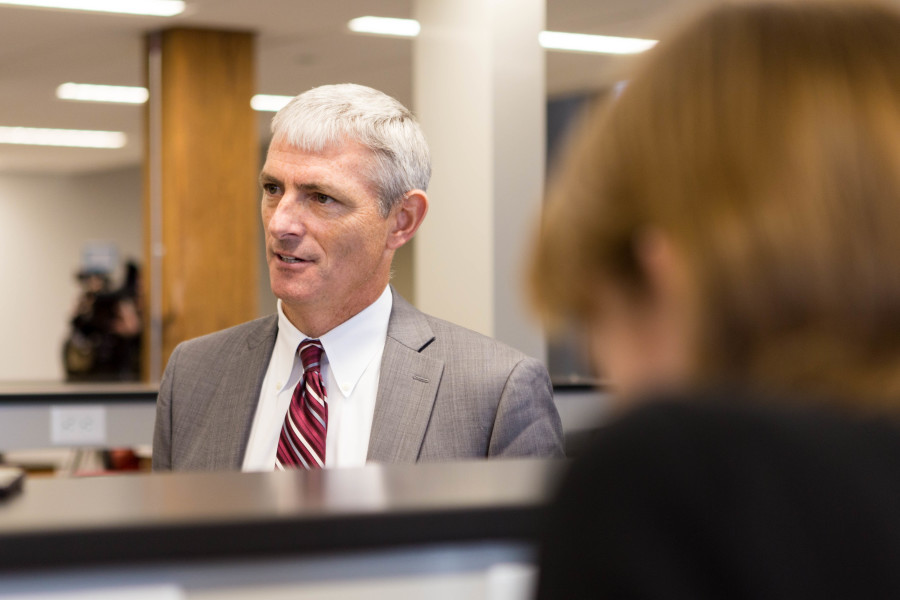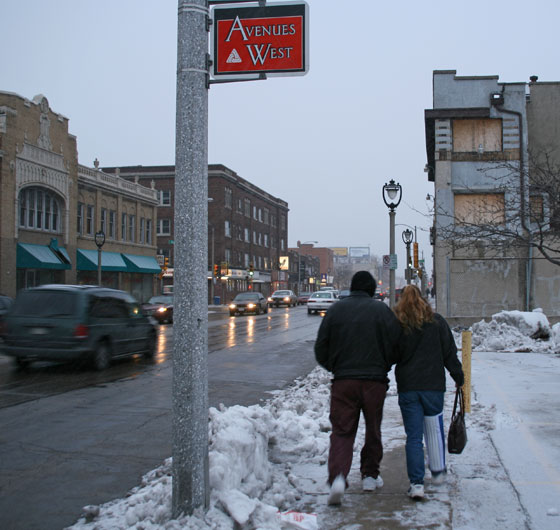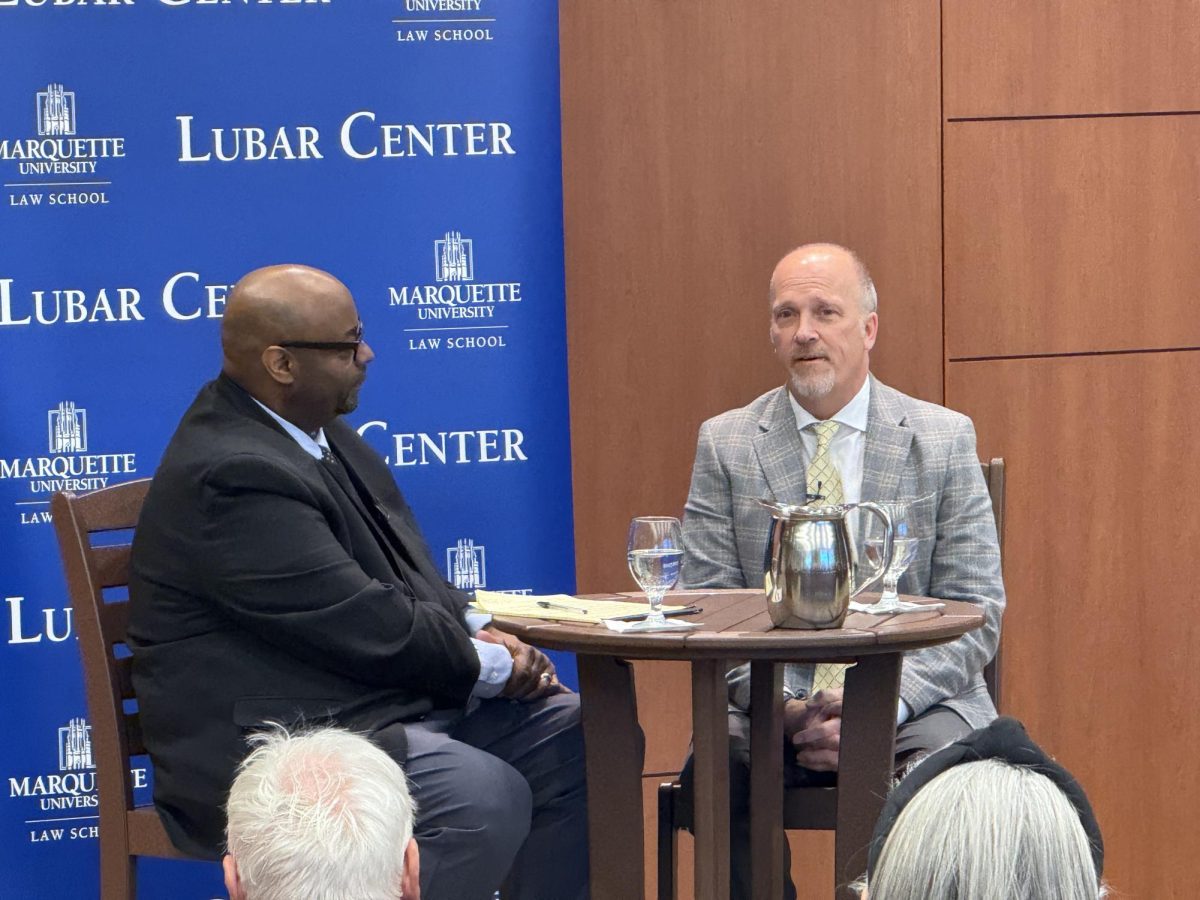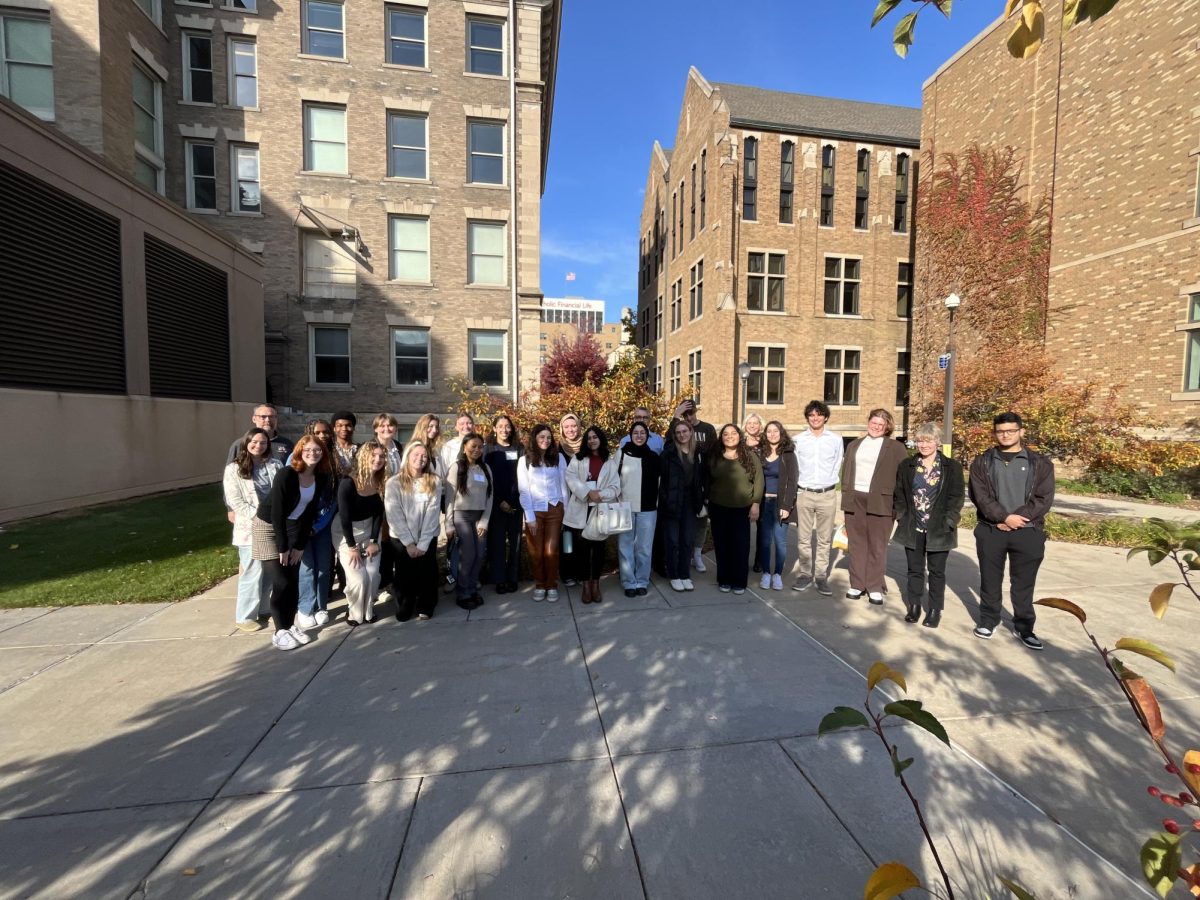 Lake Michigan has always been a main attraction of downtown Milwaukee, providing a scenic view for passers-by. Marquette’s 2010 Public Service Conference, “Water and People,” discussed possible repercussions if the landmark is not carefully preserved.
Lake Michigan has always been a main attraction of downtown Milwaukee, providing a scenic view for passers-by. Marquette’s 2010 Public Service Conference, “Water and People,” discussed possible repercussions if the landmark is not carefully preserved.
On Friday, Marquette Law School hosted the water conference and opened it to the general public. The conference focused on the development of a water ethic in Wisconsin and its effects on economic development and environmental protection.
Conference participants discussed how the Great Lakes have long been a supply of freshwater for citizens and an ecosystem for wildlife. Due to issues such as water contamination, the supply recharging the Great Lakes has significantly diminished. This has resulted in lower water levels in the Great Lakes.
Wisconsin, a prime source of fresh water, has been significantly affected.
Lori Grant, river protection manager of River Alliance of Wisconsin, said this issue is directly affecting the economic development of the town of Abbotsford, Wis., because of its insufficient water supply. She also said the property values of lake houses have been decreasing.
Robert Nauta, hydrogeologist and owner of RJN Environmental Services LLC, said the Little Plover River, which runs through Langlade, Marathon and Portage counties, has also experienced drastic changes. Nauta said Plover River has shrunk considerably and is practically a dry trail compared to 10 years ago.
According to River Alliance of Wisconsin data, the average water flow of Little Plover River was 10 cubic feet per second from 1959 to 1987. By the end of last summer, the flow decreased to less than two cubic feet per second, Nauta said.
Keynoting the conference was Cameron Davis, a senior adviser for the U.S. Environmental Protection Agency’s Great Lakes Restoration Initiative. Davis spoke about the $475 million of EPA funding in President Obama’s 2010 budget.
“The Great Lakes appear to be big, but they are actually quite fragile,” Davis said. “We know the problems, we know solutions, we have to get down to business and save the Great Lakes.”
Davis said the Great Lakes Restoration Initiative has an advantage being in the Midwest. He said people have been more willing to assist in this project, which bodes well for the project because of its constant call for partnerships in the area.
Davis also said a portion of the funding will go toward education.
“We need to make sure the next generation is prepared for this enormous ecosystem challenge,” he said.
Davis said after a certain point, the state of the Great Lakes will be out of human hands and up to the ecosystem.
“The Great Lakes have gotten to be more than money,” Davis said. “It’s about a new ethic, a new standard of care.”
After his speech, audience members discussed their current efforts for the Great Lakes Restoration Initiative. Davis responded to these comments by emphasizing the power of word-of-mouth.
“For any of you who are receiving restoration funds, brag about them,” Davis said. “Make the most of it and market your successes.”



